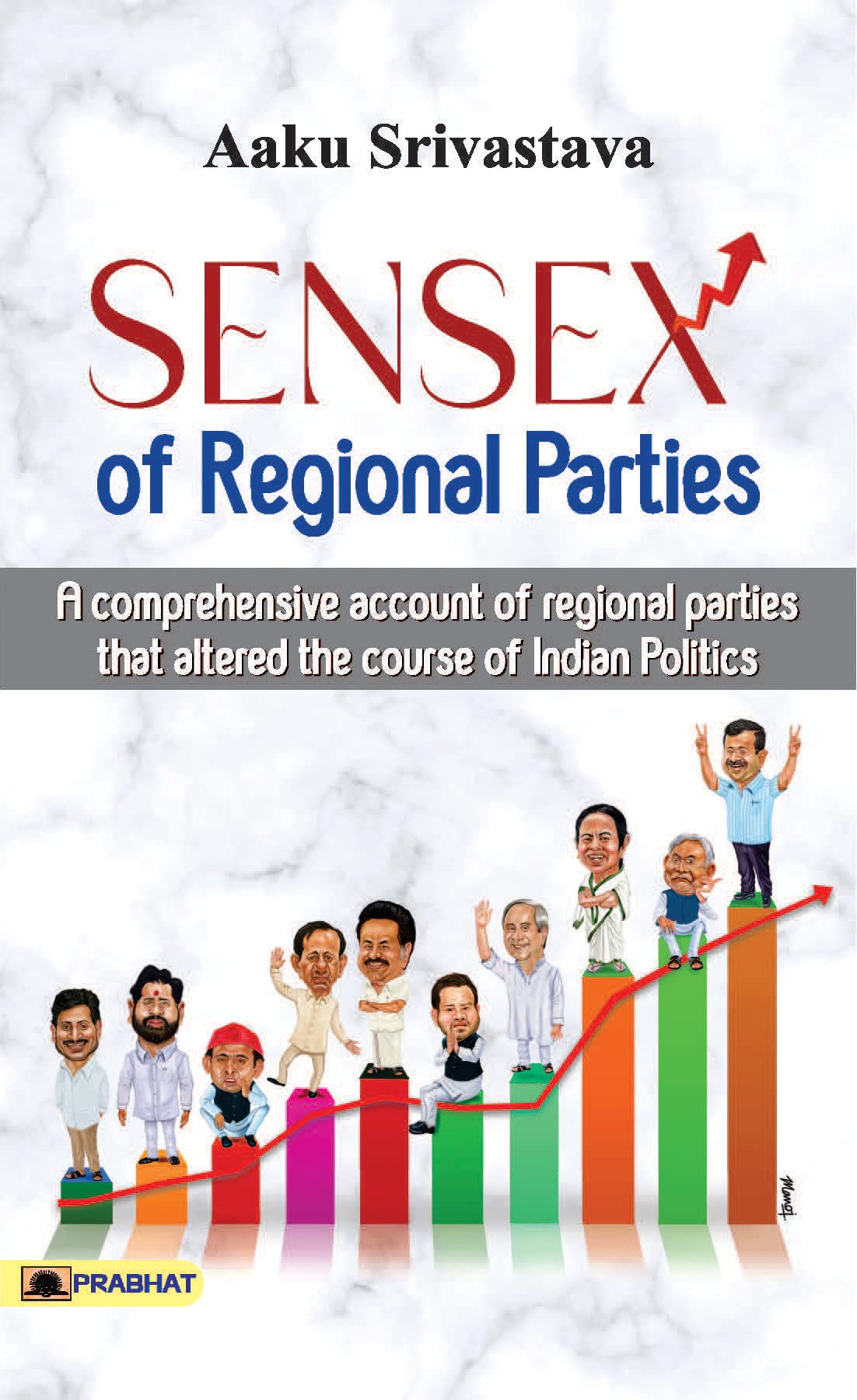
Aaku Srivastava in his book, “Sensex of regional parties” may not have delved deep from the point of view of sociological or political science, but the detail in which regional parties operate in the country – their what, when, how and now – makes it an important document. A book review by jyoti
There has been a continuous emerging of cults out of other cults in our country. This is also seen in the fragmentation of political parties and the rise of new parties from them.
Aaku Srivastava, who has played a long innings in journalism and authorship, in his new book, Sensex of Regional Parties, may not have delved deep from the point of view of sociological or political science, but the detail in which regional parties operate in the country – their what, when, how and now – makes it an important document.
For those preparing for competitive exams and media persons, this book is not only a one-stop useful reference material but also a ready reckoner. The presentation of the subject is very appropriate for the overall depiction of the subject. The subtitle written on the cover of the book “A comprehensive account of regional parties that altered the course of Indian Politics” signifies this. It is very interesting to know when a particular party was formed, what circumstances led to its formation and how it is doing now. This is first book of its kind in English which caters to all these curiosities.
After the unprecedented rise in the status of regional parties in the early 1990s and late 1990s, a new balance of power emerged in the electoral competition at the national level that caste and community politics lapped up soon. There, regional parties registered their strong presence not only in their respective states but also in national politics. And now the voters who vote for their favorite regional party within the state change their attitude in the Lok Sabha elections. Underlining this new trend, interesting stories from regional parties are in this book.
The author considers the rise of regional parties as “one of the most important events in post-independence history.” Also, the monopolistic attitude of Indira Gandhi also gave rise to many regional parties opposing the Emergency. In the book, the author elaborates a new perspective about Shiromani Akali Dal (1920), DMK (1949) as the oldest regional parties of India.
Book details
Name : SENSEX OF REGIONAL PARTIES
PUBLISHER : PRABHAT PRAKASHAN
PAGES: 422
PRICE :RS.500












